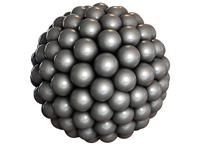
In this latest round, USEPA has now levied a $82,400 fine against California-based Kinetic Solutions stemming from the company's anti-microbial claims related to an air-purifier that utilized a "nano-silver pre-filter." According to the company's promotional material, its "RabbitAir" purifiers use HEPA filters to "filter out 99.97% of the allergens and pollutants from the air you breathe without producing more harmful byproducts in the process." The company's website, however, no longer contains any information about its "nano-silver pre-filters," or any antimicrobial claims.
The fine against Kinetic Solutions is for alleged violations of the Federal, Insecticide, Fungicide, and Rodenticide Act (FIFRA) – a somewhat obscure federal statute that many manufacturers would be amazed to learn applies to their "non-insecticide" products. After all, since when is an air-purifier considered an insecticide? The short answer is "as soon as the manufacturer starts making claims that it kills germs." Once such claims are made, the product must be registered with USEPA as a pesticide and the claims must be substantiated by valid scientific studies. Additionally, the manufacturer must register its plant as a pesticide manufacturing facility and label its products with a registration number designated by USEPA.
In a press-release about the fine, USEPA indicated that: "[m]ore and more manufacturers are touting 'nano' particles as antimicrobial. EPA takes unsubstantiated claims very seriously, and as with the case against Kinetic Solutions, we will take action against unregistered products." Additonally, USEPA indicated that it "will not register a pesticide until it has been tested to show that it will not pose an unreasonable risk when used according to the directions. Consumers should be careful to look for the EPA registration number printed on product labels, and to follow the directions for safe use."
Thus, while it was Kinetic Solution's antimicrobial claims that brought about its unfortunate legal problems – rather than the use of nanosilver itself – companies should still cautiously check to make sure they have a good understanding of any potentially applicable state and federal laws before they begin selling a new innovative product.
Sources:
- Hefty fine for So Cal Company's untested "nano" claims, USEPA, http://yosemite.epa.gov/opa/admpress.nsf/d0cf6618525a9efb85257359003fb69d/3db62e7e695b684a852577fa005948dc!OpenDocument .
- Federal Insecticide, Fungicide, and Rodenticide Act, 7 U.S.C.A. § 136(e)(a) (2008).
- FIFRA and Fines, Nanotechnology Law Report, http://www.nanolawreport.com/2008/03/articles/fifra-and-fines/ .
- EPA Takes Aim at Anitmicrobial Products Under FIFRA, Nanotechnology Law Report, http://www.nanolawreport.com/2009/09/articles/epa-takes-aim-at-anitmicrobial-products-under-fifra/ .
- RabbitAir, http://www.rabbitair.com/ .
This work is licensed under a Creative Commons Attribution-NonCommercial 3.0 Unported.
